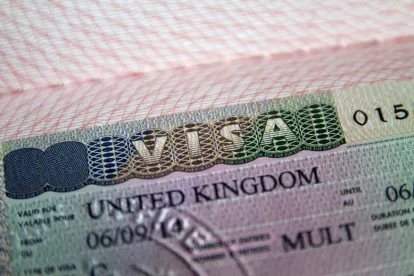On Wednesday, 1 July 2020, Foreign Secretary Dominic Raab confirmed, in a statement to Parliament about Hong Kong, a new bespoke U.K. immigration route for British National (Overseas) (BNO) citizens and their dependants. BNO status is a previously obscure form of British nationality held by an estimated 2.9 million people in Hong Kong that, until now, did not allow for long-term residence in the United Kingdom.
This proposed route should allow eligible BNO citizens to apply for a five-year visa permitting them to live, work and study in the U.K. At the end of the five years, the BNO visa holders will be eligible to apply for indefinite leave to remain. They will further be able to apply for British citizenship after holding indefinite leave to remain status for one year. We suspect that this visa category will be similar to the U.K. Ancestry visa which also offers a five-year route to indefinite leave to remain. The Ancestry visa is for certain commonwealth citizens with a grandparent who was born in the U.K. The Ancestry visa allows these foreign nationals to live, work and study in the U.K. The main difference between the Ancestry visa and BNO status is that BNOs with indefinite leave do not have to apply to naturalise. Instead, they can register as British citizens under Section 4 of the British Nationality Act 1981 using Form B(OTA). However, non-BNO family members will still likely have to naturalise as British citizens.
BNO status was an entitlement but was not automatic — it had to be acquired by registration. For most people, the final deadline for registration was 1 July 1997, though for some it was extended to 31 December 1997. Therefore, BNO status only belongs to a closed group of people. Anyone who missed the deadline for registration cannot apply retroactively for this type of nationality status, even if they would have been eligible to apply for it at that time. To qualify for BNO status, a person had to be a British Dependent Territories citizen by connection with Hong Kong. Those who did not register for BNO status and had no other nationality or citizenship on 30 June 1997 automatically became British Overseas Citizens on 1 July 1997.
It is important to note that not all Hong Kong nationals who want this status necessarily have it and this status cannot be inherited or passed on. As such, many of the young protestors seen on news reports may have been born after 1997 and, if this is the case, then they will not be able to obtain BNO status.
No actual changes to immigration rules or citizenship legislation have been announced yet. The U.K. government has said that further details of this new immigration route will be released in due course. We cannot predict how long this will likely take to come into effect. The Conservative Party could have used its parliamentary majority to amend the British Nationality Act 1981 to allow BNO citizens to skip the visa stage and simply register as British citizens. However, we suspect that the U.K. government will most likely implement this route with a Statement of Changes to the immigration rules which will need to be laid before Parliament for approval before this can become law. Therefore, it looks like it will take some time to implement.
The cost of the visa is yet to be announced. However, considering the fees for visas in the other categories, we suspect that it could be quite costly.
We are in uncertain times with the world of Immigration and it is becoming increasingly complex. As such, this newest announcement is a breath of fresh air. There will unquestionably be more changes in the coming months and years with the new immigration system being introduced in 2021.





 />i
/>i

